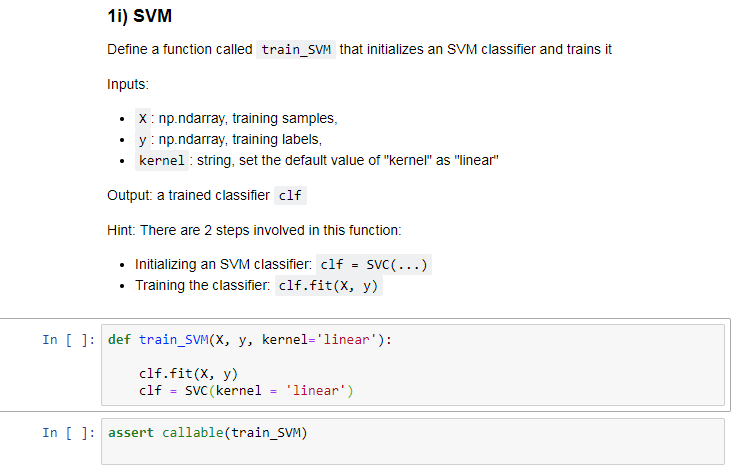Answered step by step
Verified Expert Solution
Question
1 Approved Answer
https://github.com/COGS108/Assignments/blob/master/A5/A5_NaturalLanguageProcessing.ipynb PYTHON PANDAS from sklearn.svm import SVC from sklearn.feature_extraction.text import CountVectorizer, TfidfVectorizer from sklearn.metrics import classification_report, precision_recall_fscore_support 1i) SVM Define a function called train SVM
https://github.com/COGS108/Assignments/blob/master/A5/A5_NaturalLanguageProcessing.ipynb
PYTHON PANDAS
from sklearn.svm import SVC from sklearn.feature_extraction.text import CountVectorizer, TfidfVectorizer from sklearn.metrics import classification_report, precision_recall_fscore_support

Step by Step Solution
There are 3 Steps involved in it
Step: 1

Get Instant Access to Expert-Tailored Solutions
See step-by-step solutions with expert insights and AI powered tools for academic success
Step: 2

Step: 3

Ace Your Homework with AI
Get the answers you need in no time with our AI-driven, step-by-step assistance
Get Started


